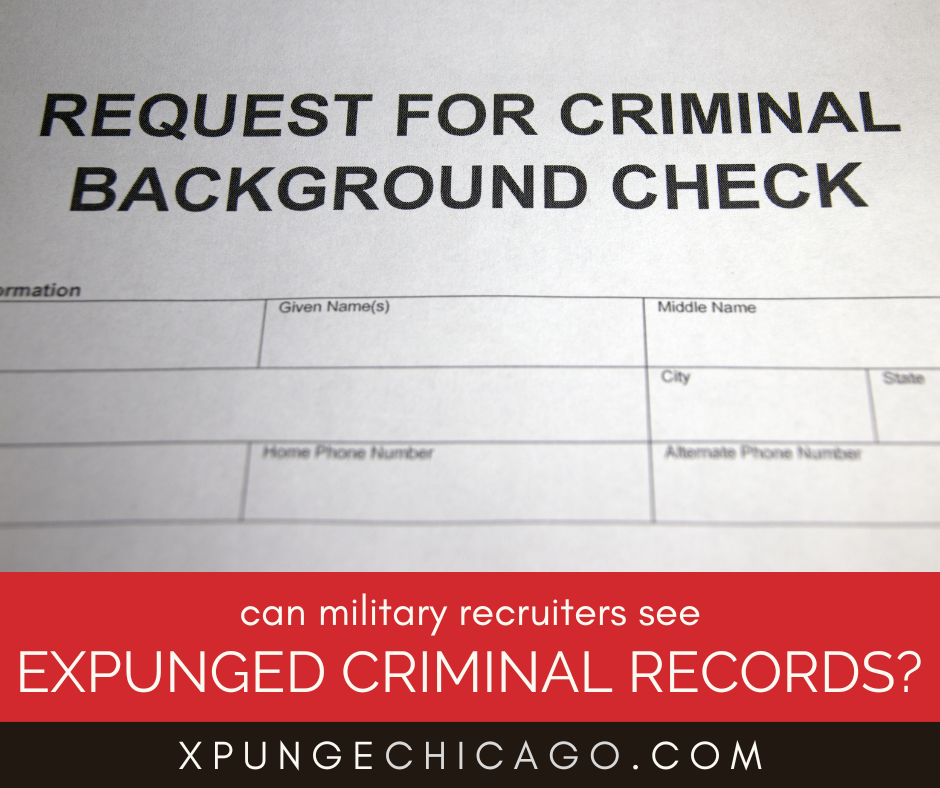
If you’re considering joining the military and have a criminal record, you might wonder if military recruiters can see expunged records. The answer is usually no, they cannot see expunged records. Expungement effectively removes these records from public files, which means they are destroyed or returned to you. Here’s how expungement can help you enlist in the military.
Can Military Recruiters See Expunged Records?
Military recruiters typically cannot see expunged records because expungement removes these records from public access. When a record is expunged, it is destroyed or returned to you, making it as if the incident never occurred. This can help you present a clean slate when enlisting in the military.
This guide explains the following:
- Understanding expungement and its effects
- The impact of expungement on background checks
- The benefits of expunging your record before enlisting
- How expungement helps you in the enlistment process
Here’s a closer look at each.
Understanding Expungement and Its Effects
Expungement is a legal process that removes your criminal record from public view. Once a record is expunged, it is either destroyed or returned to you. This means that the record no longer exists in public databases, and you can legally state that the incident did not occur. Expunged records are not visible to most employers, landlords, or institutions conducting background checks, including military recruiters.
Related: Chicago expungement information
The Impact of Expungement on Background Checks
Expungement significantly impacts background checks by ensuring that expunged records do not appear. Military recruiters rely on background checks to assess the suitability of potential recruits. Since expunged records are removed from these checks, they cannot be seen by recruiters. This allows you to present a clean record, free of past offenses, when applying to join the military.
The Benefits of Expunging Your Record Before Enlisting
Expunging your record before enlisting offers several benefits:
- Improved Eligibility: With an expunged record, you can meet the moral standards required by the military without the burden of past offenses.
- Enhanced Privacy: Expungement protects your privacy by removing records from public access, reducing the risk of discrimination or bias.
- Peace of Mind: Knowing that your record is clear of past offenses can give you confidence and peace of mind during the enlistment process.
How Expungement Helps You in the Enlistment Process
Expungement helps you in the enlistment process by ensuring that your criminal record does not hinder your chances of being accepted. When military recruiters conduct background checks, expunged records do not appear, allowing you to meet the enlistment criteria more easily.
Related: Can people you date find your criminal record?
FAQ About Military Recruiters and Expunged Records
Check out these commonly asked questions about military recruiters and expunged records. If you don’t see your question here, please call our office and we’ll find you the answers you need.
Can Military Recruiters See Expunged Records?
No, military recruiters usually cannot see expunged records. Expungement removes these records from public access, ensuring they do not appear during background checks.
What Happens to Expunged Records?
Expunged records are either destroyed or returned to you. This process removes them from public databases, making it as if the incident never occurred.
How Does Expungement Improve My Chances of Enlisting?
Expungement improves your chances of enlisting by ensuring that past offenses do not appear on background checks. This allows you to present a clean record to military recruiters.
Related: 5 great reasons to clear your Illinois criminal record
How Can I Start the Expungement Process?
To start the expungement process, you should consult with an attorney who can help determine your eligibility, prepare the necessary paperwork, and represent you in court.
Do You Need to Talk to an Attorney About Expungement or Sealing?
If you’re tired of your criminal past coming back to bite you, we may be able to help. Call us right now at 847-920-4540 or fill out the form below so we can talk about your case.
Oops! We could not locate your form.















